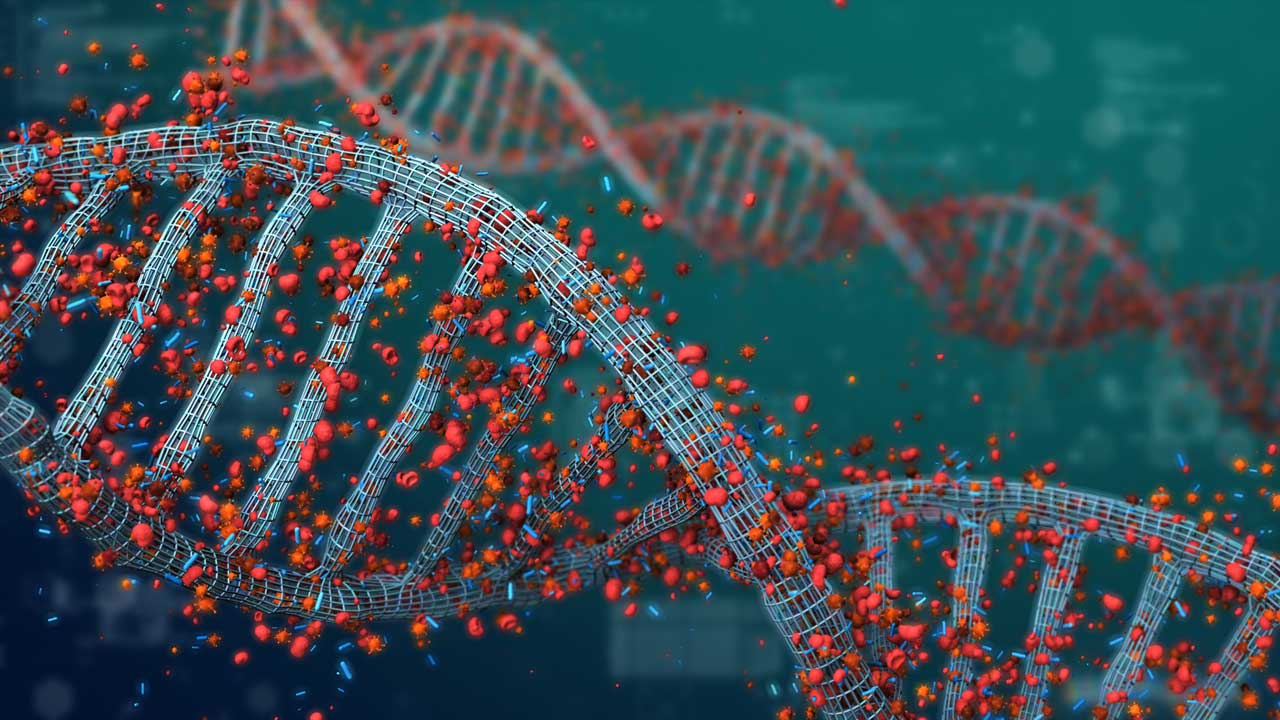
Peptides are the molecular messengers, catalysts, and signaling powerhouses that shape countless processes in living organisms. With their unique combination of specificity, versatility, and relative ease of production, peptides are revolutionizing our understanding of health, disease, and even industrial applications.
At Adesis, we’ve seen firsthand how a deeper insight into peptides can help accomplish client goals in therapeutics, diagnostics, and beyond. We will explore the many roles peptides play in nature, highlight their expanding suite of applications, and shed light on how you can harness their potential. Then, we will touch on how our services at Adesis can bolster your peptide-driven projects.
Mapping Out the Role of Peptides in Biology
Peptides are composed of two or more amino acids linked by peptide bonds. While proteins usually span 50 or more amino acids in length, peptides are shorter, often ranging from just a few residues to a few dozen. Despite their modest size, these molecules punch well above their weight, influencing everything from intracellular signaling to systemic physiological regulation.
Communication and Regulation
Many peptides serve as messengers that bridge the gap between various cells, tissues, and organs. They travel through the bloodstream or extracellular fluid, binding to specific receptors and triggering cascading responses. In this way, peptides often function akin to hormones or neurotransmitters, relaying critical information that keeps an organism’s systems functioning in harmony.
Some peptides alert the immune system to infections, prompting a swift and targeted defense. Others help regulate appetite, reproductive cycles, and stress responses. In each of these scenarios, the peptide’s specific amino acid sequence confers high selectivity for its target receptor, minimizing unwanted interactions while ensuring a robust response.
Defense Mechanisms
Peptides are also defenders, standing guard against pathogens. Antimicrobial peptides (AMPs) are synthesized by plants, animals, and even microorganisms to fend off viruses, bacteria, and fungi. Often positively charged, AMPs can bind to negatively charged microbial membranes, forming pores or disrupting the membrane structure, leading to rapid microbial death.
Beyond direct antimicrobial action, some peptides modulate the immune system, serving as cytokines that influence how immune cells coordinate during an infection. This multifaceted protective role underscores why peptide research is so vital to medicine and agriculture; harnessing or modifying these natural defense systems could yield safer, more effective treatments for infectious diseases.
Highlighting Therapeutic Capabilities
In the realm of drug development, the unique attributes of peptides have piqued considerable interest. They can achieve high specificity for a given receptor or biological pathway, potentially reducing side effects compared to small molecules that interact with multiple targets. Furthermore, peptides often degrade into harmless amino acids, lowering long-term toxicity concerns.
Vaccines and Immunotherapies
Peptide-based vaccines showcase how carefully chosen peptide sequences can provoke specific immune responses without exposing patients to a whole pathogen. Scientists pinpoint short sections of viral or bacterial proteins, known as epitopes, that elicit robust immune reactions. By administering these peptide segments in a vaccine, they can train the immune system to recognize and neutralize the real pathogen more effectively.
Such precision extends to cancer immunotherapies, where tumor-specific peptide antigens teach the immune system to identify and attack malignant cells. By tailoring these peptides to unique cancer mutations, researchers aim to create personalized vaccines that trigger minimal damage to healthy tissue.
Chronic and Rare Diseases
Peptides can also play a role in how we diagnose and treat chronic and rare diseases. A few top examples include:
- Target Specificity – Peptides can be engineered to dock with high affinity to specific receptors, mitigating the risk of broad, off-target effects.
- Favorable Safety Profile – They typically degrade into amino acids, lessening the accumulation of toxic metabolites.
- Adaptability – Peptide backbones can be modified (e.g., cyclized, pegylated) to improve stability, half-life, or tissue penetration.
Thanks to these traits, peptide therapies are increasingly investigated for complex disorders such as multiple sclerosis, inflammatory bowel disease, and some metabolic syndromes. The notion of “designer peptides,” engineered to modulate disease pathways selectively, presents a promising frontier that continues to expand.
Beyond Healthcare: Broader Applications of Peptides
The story of peptides isn’t limited to pharmaceuticals. In fact, their usefulness extends into agriculture, industry, and even environmental science. This broader view of peptide utility underscores just how flexible and innovative peptide-based solutions can be.
Agricultural Advancements
Farmers and agricultural scientists often face the twin challenges of pest control and crop yield optimization. Synthetic pesticides can harm ecosystems, while overuse can lead to resistant pests. Peptides, on the other hand, may offer an eco-friendlier alternative. Some antimicrobial peptides show potent activity against plant pathogens, reducing the need for traditional chemical pesticides.
Meanwhile, peptides that act as growth regulators can nudge plant development toward higher yields or better stress tolerance without the drawbacks commonly associated with synthetic fertilizers or hormones.
Materials and Nanotechnology
Peptides can also play a major role in materials and nanotechnology. A few top examples include:
- Self-Assembling Structures: Certain peptides can spontaneously arrange themselves into fibers, hydrogels, or other nanoarchitectures, serving as scaffolds in tissue engineering or drug delivery.
- Biodegradable Polymers: Peptide-based polymers break down naturally, cutting back on persistent waste. Researchers are exploring how these materials could replace plastics in niche applications like biomedical implants or specialized packaging.
The environment also benefits from peptide ingenuity. Biosensors constructed with peptide-based recognition elements can detect pollutants or pathogens in water and soil, enabling real-time monitoring of contamination levels. This synergy between peptides and nanotechnology exemplifies how fundamental biological principles can be harnessed to solve modern, large-scale problems.
Overcoming Limitations and Optimizing Potential
For all their benefits, peptides come with inherent challenges. Perhaps the biggest one is stability. Peptides can degrade quickly in biological environments due to enzymatic action. Oral administration, for instance, often fails because digestive enzymes break down peptide bonds before absorption can occur. Researchers respond by engineering cyclic peptides, pegylating peptides, or enclosing them in protective carriers to improve bioavailability and half-life.
Another hurdle is cost. Although synthesizing short peptides has become more affordable with modern techniques, large-scale production can still prove expensive, especially for complex or heavily modified sequences. Regulatory approval for novel peptide therapeutics also requires a thorough demonstration of safety, efficacy, and consistent manufacturing. This process can be prolonged if the molecule’s structure or mechanism is particularly intricate.
Real-World Examples and Future Directions
From bench to bedside, peptides continue to prove their worth. Peptide-based drugs addressing conditions like type 2 diabetes (GLP-1 agonists) and severe osteoporosis (PTH analogs) have already secured market approval, saving or improving the lives of countless patients. Meanwhile, the pipeline is brimming with candidates targeting cancer, infectious diseases, neurodegenerative disorders, and autoimmunity.
Peptide-Drug Conjugates and Combinations
An emerging field involves pairing peptides with other therapeutic agents for dual or synergistic effects. Peptide-drug conjugates can steer cytotoxic or antiviral substances directly to their intended targets, minimizing collateral damage. Similarly, combining peptides with small molecules or biologics in a single treatment can tackle multiple disease pathways at once, a strategy that may be especially relevant in complex, multi-factorial disorders.
Personalized Approaches
As sequencing costs drop, a wave of personalized peptide treatments looms on the horizon. Scientists are already designing peptides based on a patient’s unique genetic makeup or the specific mutations within a tumor. These treatments aim to precisely modulate the disease process while preserving healthy cells and tissues, which is a dream scenario in oncology and gene therapy. Add in breakthroughs like mRNA technology, and the potential for individualized peptide vaccines or combination treatments becomes even more tangible.
Balancing Research Practicalities
While the science of peptide innovation can be exhilarating, researchers and developers must keep practical considerations in check to maintain project momentum and budgetary viability. A few key components researchers need to keep in mind include:
- Resource Allocation: Peptide programs often demand specialized equipment and expertise in synthetic chemistry and analytical verification.
- Supply Chain Management: Acquiring high-quality amino acids and protecting groups and reagents in a timely, cost-effective manner can be a linchpin for large-scale or time-sensitive projects.
- Intellectual Property: Patenting novel peptides or delivery methods involves navigating a competitive landscape. A solid IP strategy can protect your investment and bolster your position in the marketplace.
By planning thoroughly, organizations position themselves to overcome challenges and remain agile in a fast-evolving sector.
Partner with Adesis to Unlock the Power of Peptides
Peptides’ capacity to revolutionize research and industry seems almost limitless, from meticulously engineered therapies to sustainable agricultural agents. Yet, turning these possibilities into concrete outcomes requires the right blend of know-how, technology, and collaboration.
At Adesis, our services equip you to innovate with confidence. Whether you’re exploring novel antimicrobial peptides, crafting targeted drug conjugates, or scaling up production, our experienced team stands ready to support your vision. Connect with us to learn how we can help drive your peptide-focused projects to the next level.


